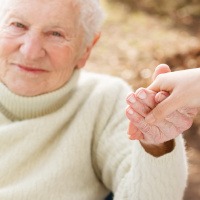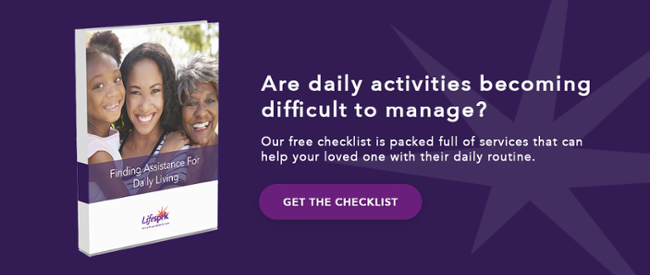
A fall can be traumatic for all involved. The shock of the incident can make it difficult to stay calm and make the decision of whether or not your loved one should go to the doctor.
“Calling 911 for non-emergency falls can lead to higher senior costs and waiting long hours in an emergency room for something that could be treated at home,” said Vicki Condon, RN Lifesprk RN Case Manager. “For many of our clients they feel safe knowing they can call us immediately with concerns and we will check on them to give guidance on next steps even coordinating doctor appointments, getting them there, and asking the right questions. But it’s also equally important to make sure there’s a plan in place after a fall to prevent the next one.”
If you’re unsure if your loved one needs to go to the doctor, it’s advisable for them to receive a thorough check-up. This way, you can have peace of mind that they’re ok and they’ve received any necessary medical attention.
What to do immediately after a fall
While it’s normal to feel shocked, try to remain calm and don’t panic. Think about the seriousness of the fall. Did your loved one fall down the stairs and hit their head? Or did they trip over some furniture and hit their knee?
Try to work out which areas might have been injured. At this stage, don’t have them try to get up too quickly or make any sudden movements.
If after slowly trying to get up off the floor your loved one feels unable to do so, it may be time to call for help.
Can your loved one get up and walk normally?
If your loved one has hurt their foot, ankle, or leg so badly that they cannot get up and walk, it’s clear that the injury is severe enough to need medical attention. They will likely need an x-ray to see if they have broken any bones. Even if you believe that they haven’t broken any bones, your loved one should still get a full check-up so that their injuries don’t cause any avoidable long-term issues.
Does your loved one have any joint or muscle pain?
Perhaps your loved one has managed to get up and perform some daily tasks since the fall. While serious injuries seem to emerge immediately, it can take some time for other issues to develop.
Your loved one should look out for joints that feel stiff and lock up easily. If that’s the case, they should go to the doctor even if it’s a few days after the fall. Although they might not feel a lot of pain if their joint feels locked or wobbly, this could be a sign of a ligament or cartilage tear.
Did they hit their head?
Any risk of a head injury is serious enough to warrant swift medical attention. While your loved one might think a headache is normal after hitting their head, it could be the sign of a concussion or another head injury.
In the hours and days following a fall, your loved one should be on the lookout for feelings of dizziness, confusion, and nausea. If they tell you they’re having any memory loss or loss of consciousness, they need to see a doctor right away.
While sometimes there’s not much doctors can do to treat a concussion, it’s best to see a doctor who will be able to evaluate your loved one’s situation to see if further treatment is required and what precautions they should take.
Do they have any pre-existing medical conditions?
It’s possible that a pre-existing medical condition is the culprit of your loved one’s fall. Weak vision, changes in blood pressure, and any medications your loved one is taking could be possible causes of the fall. Getting a full check up will help to rule out any underlying medical issue your loved one may have and will help to prevent the risks for falling again.
During a visit to the doctor, your loved one should be screened for any of these common health issues.
The doctor will also check on general leg strength and examine your loved one’s feet. It’s important that the doctor knows of any medication the senior is on as well as any recent changes in health or behavior. Medication can often be the key to determining what caused the fall.
If these health concerns turn out to be the reason for the fall, it’s important that the doctor has a full picture and can determine a suitable treatment plan to prevent future falls from taking place.
Once a senior has fallen, the chance of them falling again significantly increases. Visiting the doctor is the best way to assess how the initial fall took place and how any medical issues can be addressed to prevent similar falls from happening in the future. Even if your loved one says they feel fine after a fall, it’s always best to take precautions when it comes to their health and get a proper check-up following the incident.



